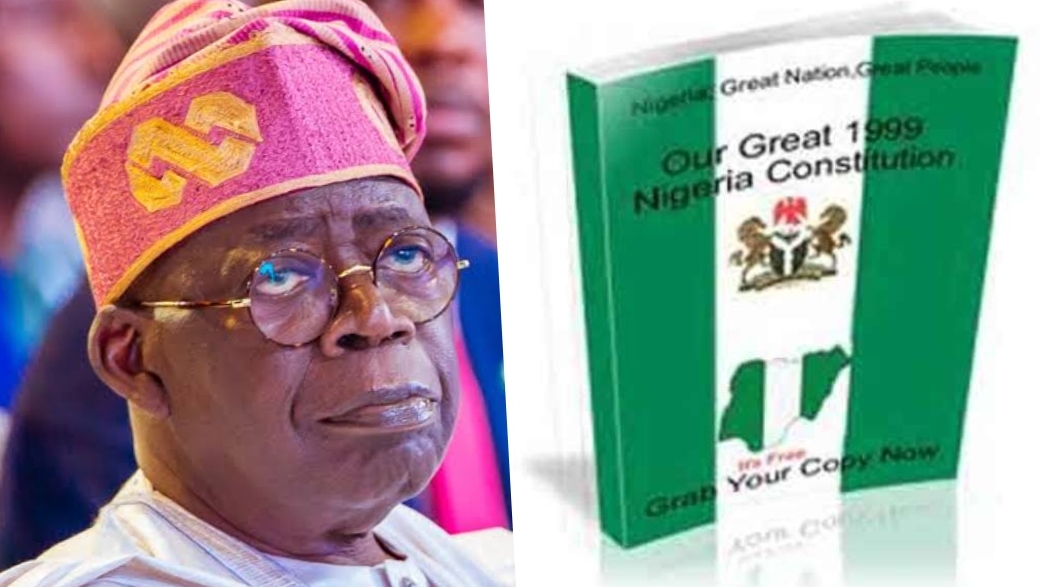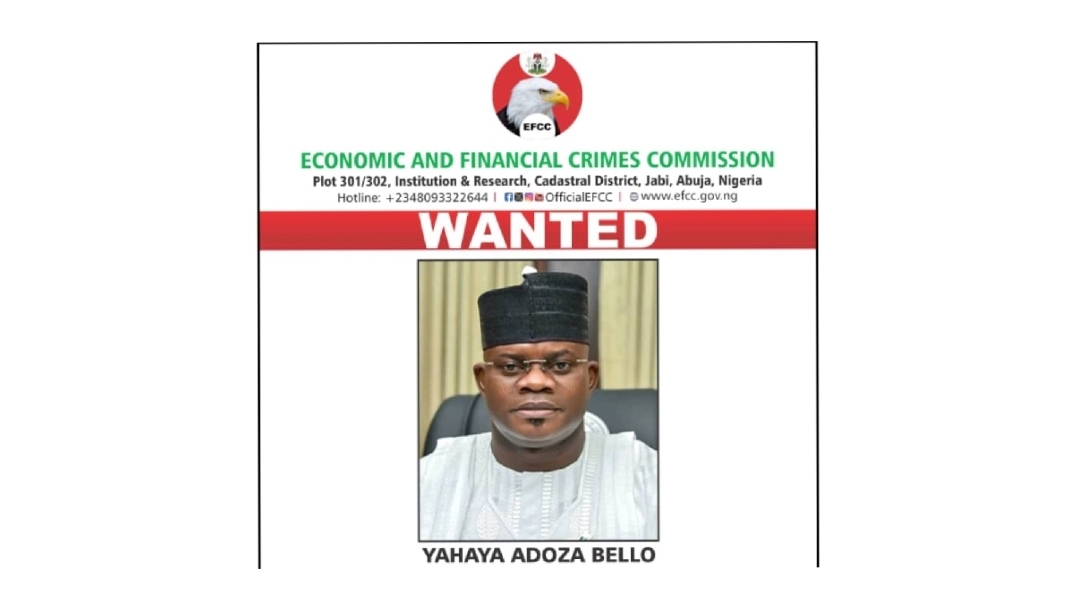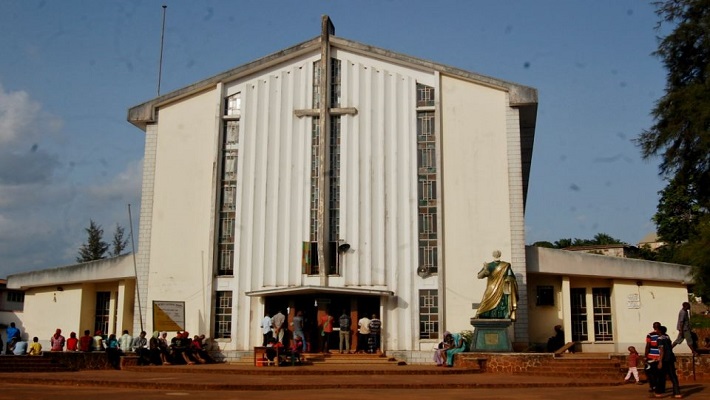Austin Aneke: Is Nigeria suffering from leadership or structural crisis?

In recent times, there have been ongoing debates regarding the primary source of Nigeria’s challenges – is it a matter of flawed leadership or systemic deficiencies? Esteemed authors like Chinua Achebe have long asserted that the root cause of Nigeria’s issues lies in its leadership, and this perspective finds resonance among many.
However, an alternative viewpoint posits that leadership is a product of the existing system, emphasising the need for a comprehensive examination of the systemic intricacies before forming a well-informed judgment. Rather than engaging in a chicken-and-egg argument, I aim to draw upon global trends to facilitate a more informed analysis of the issue.
Picture Nigeria as a conglomerate of application software, each representing a distinct facet of the nation (religious, ethnic, regional, nepotism, etc.), akin to apps on a device. The problem, however, is that Nigeria lacks a functional central or system software to effectively manage these diverse and often divisive “apps.” What Nigeria desperately requires is a system software that can harmonise these varied elements.
Let’s delve deeper.
I would like to propose that most countries, especially those with a history of colonisation, undergo three distinct phases of leadership: the Opportunistic leadership phase, the Foundational leadership phase, and the Autopilot leadership phase. Opportunistic leaders are typically those who take the helm immediately after gaining independence from colonial rule.
Foundational leaders are responsible for laying the groundwork, encompassing approximately 80 per cent of a nation’s political, democratic, and economic foundations. Autopilot leaders, on the other hand, come after the Foundational phase and are tasked with maintaining the existing foundations, often without the capacity to institute significant changes.
This suggests that every successful or developed nation first passes through a Foundational phase of leadership, wherein much of the necessary foundational work is accomplished. Subsequent leaders, or autopilot leaders, simply maintain and slightly modify these established foundations.
The strength of the foundational system is what can curb the excesses of leaders, even if they are on autopilot. A weak system, in contrast, provides a playground for poor leadership. So, the question arises – should the blame be placed on the dysfunctional system or the leaders it produces? It was a strong foundational system that tamed the Trump shenanigans in the U.S. It was a strong foundational system that made Nixon resign instead of the country (U.S.) resigning, but someone built that strong system that withstood Trump and Nixon (two U.S. autopilot presidents).
To clarify the competing factors, it is vital to understand what people mean when they assert that leadership is the problem in Africa or Nigeria. Which leadership phase are they referring to? Foundational leaders are characterised by extreme altruism and patriotism, attributes necessary to resist the temptations of post-colonial office and prioritise the welfare of their nation. They play a pivotal role in establishing the core principles, democratic foundations, and frameworks for sustainable development. Postcolonial leaders are typically opportunistic, and their approaches to governance are often conditioned by the systems left behind by the colonialists, which may favour the colonial powers and the local elites rather than the general populace.
Nigeria has yet to witness the emergence of a Foundational leader. All leaders since independence fall into the opportunistic category. They have been unable to destroy divisive elements within the nation and establish a stable, functional system to propel Nigeria toward autopilot governance.
So, the problem of Nigeria does indeed revolve around leadership, as the Foundational leader has not yet emerged. However, it is crucial to acknowledge that the colonial system inherited by opportunistic leaders also plays a significant role, conditioning their behaviour to perpetuate policies that benefit the colonisers and the local elite rather than the wider population.
Let’s look at examples of nations that have had Foundational leaders:
Singapore and the United States
Lee Kuan Yew was Singapore’s foundational leader. He laid the foundation for Singapore’s transformation into a developed nation by combating corruption, focusing on long-term planning, emphasising meritocracy, and respecting multiculturalism.
In the U.S., the foundational leaders were the authors of important documents like the Declaration of Independence and the Constitution. These documents democratised opportunities, institutionalised the rule of law, protected property rights, and upheld fundamental rights and justice.
These documents also transformed the U.S. society to an achievement-oriented system, raised the technological consciousness of the people, built altruism to a great height, deplored ascriptive orientations, guaranteed the rule of law, entrenched fairness and justice in society, adopted circular orientation and instituted a system of accountability and equity. These Foundational leaders, including John Adams, Benjamin Franklin, Thomas Jefferson, and George Washington, laid the groundwork for sustainable democracy and development.
Singapore and the U.S. didn’t have opportunistic leaders following their struggle for independence; they continued under Foundational leadership. All subsequent leaders were essentially on autopilot, maintaining the robust systems put in place by their Foundational leaders.
When people in developed countries discuss their challenges, they often mention the name of their country or its system, not the quality of their leaders. This is because they have already experienced Foundational leadership and have strong systems in place. In contrast, in Nigeria and Africa, there is a preoccupation with opportunistic leaders due to the absence of a foundational system. Opportunistic leaders are primarily self-interested and do not prioritise the development of their nation. Rather than dismantling the oppressive colonial system, they perpetuate it for personal gain.
All Nigerian leaders from the time of independence to the present day can be classified as opportunistic leaders who have capitalised on and continue to benefit from a post-colonial system that primarily serves their interests and those of the former colonial powers. At times, it’s not their lack of knowledge that hinders them from setting their countries on the right path towards foundational leadership, but rather their deficiency in altruism and patriotism. Corruption, tribalism, and nepotism have unfortunately marred their leadership.
Let’s look at some key Nigerian leaders and their administrations:
Balewa Regime: Often viewed as a continuation of British rule, the Balewa regime lacked the transformative qualities needed for foundational leadership.
Ironsi: His short-lived leadership did not allow him to institute substantial changes.
Gowon’s Regime: Engulfed in a brutal war with Biafra, the regime was characterised by violence and lacked the capacity for foundational leadership.
Shagari: Marked by rampant corruption, this administration failed to provide the foundational leadership the country needed.
First Buhari Junta: This leadership was marred by cluelessness, incompetence, and nepotism.
Babangida and Abacha Juntas: Undemocratic, corrupt, and brutally dictatorial, these regimes were far from foundational in their approach.
Abdulsalami’s Team: They plagiarised elements from the U.S. Constitution to create Nigeria’s 1999 Constitution, and it resulted in a dysfunctional document that continues to contribute substantially to the country’s problems.
Obasanjo’s Administration: Despite some positive efforts, Obasanjo’s aspirations for a third term were far from foundational, ultimately maintaining an opportunistic approach.
Yar’Adua: His unfortunate early passing prevented him from making a remarkable impact.
Jonathan’s Government: While displaying flashes of brilliance, the administration was generally marked by corruption, weakness, and a lack of foresight, falling short of foundational leadership.
Buhari’s Second Stint: The Buhari regime’s second term (2015-2023) can be categorised as Nigeria’s worst post-independence government. It thrived on tribalism, nepotism, religious bigotry, and hostility towards those outside the leader’s tribe, even adopting a divisive formula – 97-05 per cent. His eight years in power were characterised by misgovernance, an example of opportunistic leadership.
Unfortunately, the current regime led by Tinubu appears to be following the path of underdevelopment laid out by Buhari. Tinubu’s “Emilokan philosophy” raises concerns. He seems to be a highly opportunistic leader who secured power with the apparent support of the electoral umpire and appears determined to disappoint.
His approach suggests an intention to take nepotism even further than Buhari did for the North. He arrived with questionable identity and credentials. These traits are far from what is required for foundational leadership. Considering the recent Supreme Court ruling on October 26, 2023, regarding the validity of his presidency, it seems likely that the country will continue to be led by opportunistic leaders for the foreseeable future.
So, leadership remains the problem in Nigeria as long as leaders fail to transcend primordial sentiments and build the foundation for a new Nigeria. Foundational leaders are instrumental in constructing robust societal institutions capable of withstanding the challenges posed by opportunistic leaders.
In conclusion, the leadership landscape in Nigeria has predominantly been opportunistic, with leaders who often prioritise personal interests over the nation’s welfare. The quest for a foundational leader, marked by altruism and patriotism, remains a challenge the nation must address to navigate towards lasting development and progress. We are left with a crucial question: Could the emerging military leaders in Francophone West African countries potentially become the first foundational leaders in West Africa? Only time will reveal the answer.
Nigeria faces challenges both in leadership and the systemic deficiencies inherited from its colonial past. A foundational leader who can build strong institutions and systems is crucial for the nation’s progress, as this will help curb the excesses of opportunistic leaders.
Dr Austin Aneke is on X @aneke_austin
We have recently deactivated our website's comment provider in favour of other channels of distribution and commentary. We encourage you to join the conversation on our stories via our Facebook, Twitter and other social media pages.
More from Peoples Gazette

Politics
Katsina youths pledge to deliver over 2 million votes to Atiku
“Katsina State is Atiku’s political base because it is his second home.”

Anti-Corruption
Don’t disgrace ex-governors; come out of hiding, face EFCC, Ortom tells Bello
‘‘You don’t need to resist arrest or anything. Go there and respond.’’

Sport
Invictus Games: Prince Harry, Meghan Markle to visit Nigeria May
Prince Harry, an ex-military helicopter pilot, initiated the show in 2014 for servicemen and women in the Commonwealth.

NationWide
Car washers, block makers, others groan as Sokoto water board cuts supply for commercial purposes
The vendors complained that they fetched water from long distances

Health
Health insurance enrollees seek improved services, decry cumbersome process
Subscribers/enrollees complained of nonchalant treatment by accredited hospitals.

Faith
Catholic priest seeks end to practice making widows swear on husbands’ corpses
‘‘The church does not oppose culture, but seeks to integrate the beautiful aspects of African culture.’’

States
Passengers lament rising transportation fares in Ilorin amid fuel scarcity
Fare from Olunlade to Offa Garage which used to be N100 is now N200.








